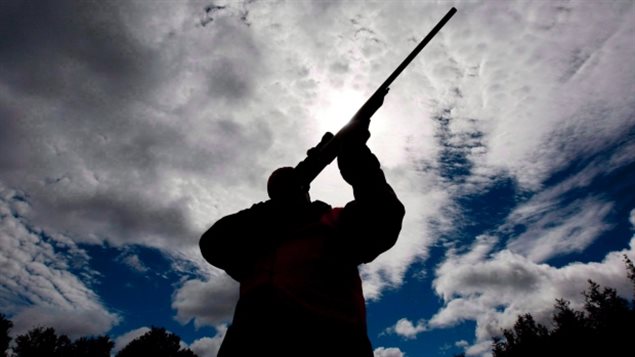On December 1, 1998, a new law came into effect that required all owners of rifles and shotguns (Long guns) to register their firearms with authorities.
Although all (legally owned) handguns have been required to be registered since 1934, it was following the shootings of 14 female university students in Montreal on December 6,1989, that calls were made for stricter firearms controls on all firearms including long guns (rifles and shotguns).
Billion dollar registry
Originally estimated to cost taxpayers a mere $2 million dollars, the Long Gun Registry as it became commonly known was one aspect of new stricter firearms controls. However costs continued to balloon to what is thought to be possibly as high as two-billion, with additional costs of millions of dollars per year to maintain.
In addition, firearms owners said the LGR was fraught with inaccuracies and inconsistancies,
In the mid 1990’s other new laws had already come into effect requiring all firearms owners to themselves be “registered” through a firearms ownership programme known as PAL- Possession and Acquisition Licence. Several types of firearms were also banned (prohibited) such as .25cal and .32 cal pistols; and all pistols with barrels of 105mm or shorter.
Automatics, or so-called assault-rifles banned for decades
Automatic firearms, “assault rifles” have been banned since 1978, although some types of “assault-looking” firearms are allowed. These are semi-automatic as are most traditional looking rifles and some shotguns. Also banned are automatic guns that have been converted to semi-auto. Magazines for all rifles in Canada are limited to five bullets only, so any and all high-capacity magazines are banned.
Law abiding long gun owners saw the LGR as a wasteful redundancy as legal owners were already themselves “registered” after police background checks, and passing a classroom firearms course and written test. They say the LGR proponents contention that it would prevent gun crime, murders, and make society “safer” could in no way be proven.
In 2010 the National Post newspaper ran the following quote from Dave Shipman, a retired 25-year veteran of the Winnipeg city police, who investigated violent crimes and homicides ,
“Never have I attended a killing where the registry of any of the weapons would have prevented that killing from occurring. The long-gun registry is not working to prevent gun crime, as it was intended. Criminals, including gang members, do not register their stolen or smuggled guns.”
Proponents had claimed that police access the computerized registry information over 14,000 times per day across Canada. However as registry information is automatically provided to when police check a car licence plate or address. But Royal Canadian Mounted Police report in their “Facts and Figures 2010” report that only 3.7 percent (530)of inquiries were actually firearms related.
In April 2012, a federal Conservative government bill became effective which ended the LGR and records began to be destroyed. Quebec however has launched a legal challenge to have information on Quebec residents preserved so that the province of Quebec can set up its own LGR.
LGR made no difference in downward trend of gun crime
Another legal challenge in Ontario to keep the LGR has recently failed. An appeal in September of 2014 to the Ontario Superior Court claimed that the withdrawal of the LGR was unconstitutional.
The Barbara Schlifer Clinic sought to show that the removal of the Registry denied women their rights under the Charter of Rights and Freedoms to: “life, liberty and security of the person” as guaranteed under the Charter of Rights.
In its judgment the court ruled that there was not sufficient evidence to conclude that the Registry had been of any measurable benefit to women and that statistically rates of firearms-related violence had been following a trend downward before the Registry and had not changed after the Registry had been withdrawn.







For reasons beyond our control, and for an undetermined period of time, our comment section is now closed. However, our social networks remain open to your contributions.